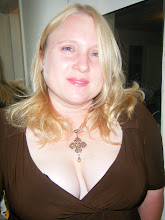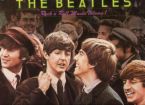The Beautiful Mystery
"Meaningless! Meaningless!" says the Teacher.
"Everything is meaningless!"
Ecclesiastes 12:8
"Meaningless! Meaningless!" says the Teacher.
"Everything is meaningless!"
Ecclesiastes 12:8
 This is both the opening sentence and the closing sentence of the book of Ecclesiastes. In it, the narrator, "The Teacher", also believed to be King Solomon, expands on the wisdom he has gained through experience in his life.
This is both the opening sentence and the closing sentence of the book of Ecclesiastes. In it, the narrator, "The Teacher", also believed to be King Solomon, expands on the wisdom he has gained through experience in his life.King Solomon was an ancient king who ruled a united Israel, perhaps the last one to do so. He is credited with writing a few books of the Bible, or perhaps inspiring them. One of the books credited to him is the Song of Songs, which is a story of erotic love. There is much debate over the meaning of this song, over whether it is an allergory of God's love, or a literal story of married love. Some teach that the ideas presented in the Song of Songs represents what God wants from us in terms of courtship and intimate love, his guidelines for us. There is also an interpretation that it was a story to be acted out, with three main characters; the woman, who is perhaps the Shulammite woman, The Sheperd, and King Solomon. However you attribute it to, the book is a story of love.
As I sat in Bible Study to begin the lesson on what the Songs of Solomon can teach us about how to find and keep lasting love, I was reading my preface to the chapter in my Life Application Study Bible. I was struck by a sentence describing King Solomon.
"King Solomon probably wrote this 'song'in his youth, before being overtaken by his own obsession with women, sex, and pleasure."
I wonder, then, how we can use this book to explain the way God wants us to love, when obviously this is a story of a love that comes to an end. How can one love so intensely another, as the pages describe, and drop it for such selfish pursuits? What does that say about lasting love?
These are the question I ask myself, as I look on my best friend. How can something seem so perfect and turn out not to be? And I wonder if it makes me question the foundation of faith in love. We've known the relationships that were built to last come crumbling down. Does it make us stop believing? How does it affect our faith?
 In the book Misquoting Jesus, the Story behind Who Changed the Bible and Why, by Bart Ehrman, the author explains the history of the New Testament and how it was changed over the ages. This is from the perspective of a biblical scholar who has devoted his life to the study of this issue. At one point in the book, the author details information about various scholars who have spoken up about the variations of the Bible over the years. During the sixteenth and seventeeth century, there were those who would like to discourage this kind of textual criticism, because of the fear that this might cause people to lose their faith in the Bible.
In the book Misquoting Jesus, the Story behind Who Changed the Bible and Why, by Bart Ehrman, the author explains the history of the New Testament and how it was changed over the ages. This is from the perspective of a biblical scholar who has devoted his life to the study of this issue. At one point in the book, the author details information about various scholars who have spoken up about the variations of the Bible over the years. During the sixteenth and seventeeth century, there were those who would like to discourage this kind of textual criticism, because of the fear that this might cause people to lose their faith in the Bible.As I was reading this book, I questioned if it changed by own faith, much as I questioned my faith in love in light of the dissolution I see around me. I find my heart filled with questions, and I turn to scripture to examine what else has been "divinely inspired" along these lines.
I want to know what happened to King Solomon and his lady. In Song of Songs, 2:15, he speaks so sweetly to her, "How beautiful you are, my darling! Oh, how beautiful! Your eyes are doves." How is it that this same Solomon was the one who also was reported to have 700 wives and 300 concubines? If he could love this true, why was it not a faithful one?
When I search for the traces of Solomon's affair, I find countless explanations for the different theories on what is happening in this book, and what it means, but never any vestages of a failed relationship with the jewish maiden he loved. Where did his love go, how does love like this just end?It seems like everyone has an interpretation, and which one of those is the true meaning?
What I do find, though, is the hint of experience, the hint of wisdom, the hint of repentance. It came from one of the other chapters accredited to Solomon, the book of Ecclesiastes. It is said that Solomon wrote Ecclesiates at the end of his reign, when he was sixty years old. The legend has it that Solomon was allowed to ask God for whatever he wanted, and what he asked for was wisdom, although he was already considered to be very wise.
I want Ecclesiastes to tell me the meaning, to answer the questions that have been raised in my heart from the fragility of the human bond; the incogruency that lies somewhere between the love story of a king and a maiden, and his subsequent descent into indulgence, between the perfectly matched personalities and the eternal seperation, between the sheets of desire and the fabric of the human soul.
So what can be concluded by of all this wisdom? In Ecclesiastes, that is what Solomon is thought to be relating; however, the overriding theme seems to be a lack of a defined conclusion.
All this I tested by wisdom and I said,
I want Ecclesiastes to tell me the meaning, to answer the questions that have been raised in my heart from the fragility of the human bond; the incogruency that lies somewhere between the love story of a king and a maiden, and his subsequent descent into indulgence, between the perfectly matched personalities and the eternal seperation, between the sheets of desire and the fabric of the human soul.
So what can be concluded by of all this wisdom? In Ecclesiastes, that is what Solomon is thought to be relating; however, the overriding theme seems to be a lack of a defined conclusion.
All this I tested by wisdom and I said,
"I was determined to be wise -
but this was beyond me.
Whatever wisdom may be,
it is far off and most profound-
Who can discover it?
So I turned my mind to understand,
to investigate and to search out wisom and the scheme of things
and to understand the stupidity of wickedness
and the madness of folly"
Ecc 7:23-25
This only I have found:
God made man upright, but men have gone in search of many schemes."
Ecc 7:29
The work emphatically proclaims all the actions of man to be inherently "vain", "futile", "empty", or "meaningless," depending on translation, as the lives of both wise and foolish men end in death. While "the teacher"clearly promotes wisdom as a means for a well-lived earthly life, he is unable to ascribe eternal meaning to it. In light of this perceived senselessness, the preacher suggests that one should enjoy the simple pleasures of daily life, such as eating, drinking, and taking enjoyment in one's wife and work, which are gifts from the hand of God.
According to some religious traditions, the point of Ecclesiates is to state that all is futile under the sun. One should therefore ignore physical pleasures and put all one's efforts towards that which is above the Sun, i.e. "God".
I think about John Mill, and his edition of the Greek New Testament with its notation of thirty thousand variants, and how now scholars believe there may be upwards of three hundred thousand v
 ariants. I think about how the latest research points to the fact that the book of Ecclesiastes was thought to be written between the second and third century BCE and not in fact the seven hundred years or so prior when King Solomon was still alive. It is commonly believed, in fact, among religious scholars that this book was not written by Solomon at all, but acredited to him to give it more credibility, and it was really written during a time when the Greek Epicurean viewpoint was prevalent.
ariants. I think about how the latest research points to the fact that the book of Ecclesiastes was thought to be written between the second and third century BCE and not in fact the seven hundred years or so prior when King Solomon was still alive. It is commonly believed, in fact, among religious scholars that this book was not written by Solomon at all, but acredited to him to give it more credibility, and it was really written during a time when the Greek Epicurean viewpoint was prevalent.So what kind of truth can we really obtain from this, really? When truth is only relative to experience and perspective, how do you define it? If the answers cannot be found or the source can not be trusted, how can we determine the answers, and have any faith in them?
My friend Lorraine sits next to me at a baby shower. I remember her husband is a Lutheran minister, and I ask her her interpretation of Song of Songs, of Ecclesiastes, of what the Bible is telling us of love when all we can see are things that were not the answers. This is what she tells me,
"You're looking for a perfect thing in an imperfect world."
I wonder how many of us that could apply to. She goes on to explain that there was only one perfect person, and he was not even really a person, but a divine one. Humans are flawed, every one of us, she tells me. We are all, at best, only human. Searching for perfection in dating relationships, in marriage partners, in even the best of spouses is a futile enterprise, and in the end we are only disillusioned if we expect to see that perfection there.
She also reminds me of the school of thought that the Bible, although "divinely inspired," is not considered to be the "unerring Word of God", which I agree with as well. That is my answer for why reading Ehrman's book does not shake my faith in God. My belief in God has nothing to do with my belief in the teachings of scripture. I accept that the Bible is not a perfect or accurate representation of the knowledge God wants to impart to the world.
My belief in lasting love, likewise, should not be solely based on the experience of the disillusionment I see around me, in the foolishness of one who refuses to see what love really is. Like the New Testament, it is based on interpretation. With all these various interpretations, the only truth becomes the one inside of you.
I am still not satisfied with that answer, though, because how can that be absolute?
I go to worship to seek the answers, only to be disappointed that the scripture reading was about something totally different. I put it out of my mind, then, these questions, and concentrated on the lessons of the day. After Communion, I sat in my pew, concentrating on the cross in front of me until it becomes the only thing I see, a reminder of the Christ who gave up his body to us so that we, sinners, with all our many schemes, can be absolved of sin. The more I open my heart, the more I feel it filled by the Holy Spirit, and that is when it comes to me.
Faith is not something you know or decide from reading a book; faith is something you feel. My questions surrounding my faith dissolve as I feel the warmth of the love of Jesus in my heart. My faith in love need not change based on the foolishness of a man. Truth is individual, based on perception, experience, emotion. The answers of which we seek lie within ourselves, if we simply open our hearts. If we search our hearts, will we find that our faith is amiss because of the imperfection of men, or intact because there are those who have shown us what it is to truly love another, to truly believe?
So I am not sure, in the end, if I have some great meaning to give to you, my friend, that is based out of my faith and can answer all the questions you have. All I have is the line from John 14:27 that settled my own heart in church today.
"Peace I leave with you; my peace I give to you."
I hope you are able to find the same peace that I was, and be able to look past the imperfections, the incongruencies, the inconsistencies, and find only faith and love left in your heart.
Sources:
http://en.wikipedia.org/wiki/Ecclesiastes
http://jeru.huji.ac.il/eb32s.htm


























No comments:
Post a Comment